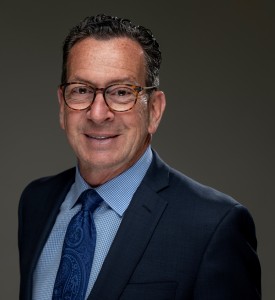 University of Maine System Colleagues —
University of Maine System Colleagues —
I’m writing to continue my practice of reporting on our recent Board of Trustees meeting, which occurred in Farmington last week. And with Thanksgiving week upon us, I’d like to begin with a message of gratitude.
But first, I wanted you to know that the University of Maine System will close at noon on Wednesday, November 27 so that you can begin your holiday preparations a bit early. Watch for more information from Human Resources on this.
Nearly five months in as your Chancellor now, I’ve gotten to know many of you. I feel incredibly grateful to have the opportunity to work with such a talented and dedicated community of university colleagues. When I see the tremendous pride you take in your work, in your universities, and in your service to students, I feel great confidence in our ability to work more closely together to attract, retain, and graduate more of Maine’s students as life-long learners and to improve their student experience along the way.
I’ve been on the road a lot with my leadership team over the last two months to talk about unified accreditation. At last count, I’ve been in 39 meetings, covering all of our main campuses and even a few of our other locations, with faculty, staff, BOV members, and students. What I’ve heard in these meetings, along with discussions with your Presidents, questions and comments from faculty representatives, and your online survey responses, helped to shape the report (Summary of Process Considerations and Framework for Pursuing Unified Accreditation Considerations (PDF)) we presented to the Board last week.
I want to specifically thank University of Southern Maine Provost Jeannine Uzzi and University of Maine Senior Associate Provost Jeff St. John for helping to present the unified accreditation report to the Board in Farmington. It’ll be critically important that our university’s academic leaders guide the unified accreditation effort, so I’m glad they’re already involved.
The Board accepted our report and directed that we continue our campus meetings as we prepare an action item for the Board to vote at its January 2020 meeting on whether to formally authorize a transition to a unified accreditation from the New England Commission on Higher Education. I’ll announce a planning committee this week so that we’ll be ready for this important work.
The full Board agenda and a summary of actions for the November meeting are available for viewing on the Board website.
The November Board meeting is where we traditionally report on fall enrollment and the story there continues to be mixed. Enrollments are stable for the time being — a positive given the continued decline in the number of students graduating from Maine high schools — but the competition for out-of-state students will continue to escalate (as you can see reported by the Portland Press Herald (External Site)).
We need to be strategic and nimble as we step up efforts to attract out-of-state students to our programs. Here’s an example of how we’re doing that.
The tuition cost of a 30-credit MaineMBA for out-of-state students has been $43,980, while Boston University charges just $24,500 for its online MBA. Despite the MaineMBA’s global ranking, out-of-state students are not willing to pay nearly twice as much to enroll in our program. Non-resident students now make up just 4% of total enrollment at the MaineMBA.
Convinced we can do better, President Ferrini-Mundy and Maine Graduate School of Business Dean Michael Weber brought a market analysis to the Board at a special meeting in October that shows a more competitive tuition could increase out-of-state enrollment to 20% of total enrollment in two years. The Board agreed and unanimously voted to reduce out-of-state tuition for the MaineMBA to $23,250.
Online education growth is a positive in our enrollment report. Year-over-year online credit hours are up 7% and now make up one-fifth of the total credit hours produced by the System.
Education Dive (External Site) and Maine Public Radio (External Site) have reported on our progress in recent weeks. That kind of progress, pace, and nimbleness have to continue if we are going to meet the differing needs of adult learners and digital-native, traditional-aged students and better serve Maine.
And yet, it’s not enough that we improve our efforts to bring new students to our universities. We have to keep them here too. I’ll be sending a special message on retention when we return next week so you’ll know about the important work we’ll be doing for that.
Until then, safe travels and Happy Thanksgiving to you and your families.
Sincerely,
Dannel Malloy
Chancellor
